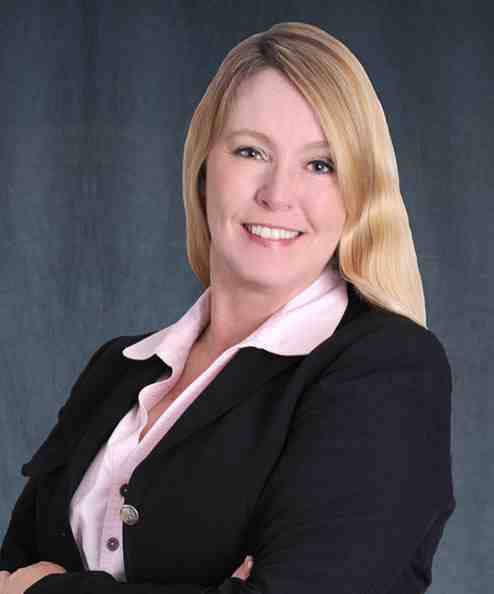Leadership in South African universities: How can Executive Search professionals help?
Johannesburg, South Africa – If we are to be successful when searching for executive management in South African universities, we need a complete understanding of what "transformation" means for that particular entity. Our tertiary education system is on a steadfast path of change, expansion and inclusivity. Funding is under great strain, but the pressure to be world-class has never been greater. Academia has a responsibility to create a long-lasting legacy and contribution to South Africa’s democracy.

Most industries handle any potential shortage of experts through well-defined search processes. In contrast, the education sector continues to endeavour to fill positions through print and online advertising, largely to meet the requirements of appearing “fair and transparent.” However, the very best candidates rarely seek opportunities through generic recruitment processes, as they are busy enjoying full-time work, interesting projects and a certain level of professional freedom.
An additional challenge is posed by the wide array of constraints that are set by the university administration and councils, and which may reduce the talent pool even further. Prospective candidates are universally required to be resourceful and able to find unique workable solutions, and in South African academia, they must also boast a PhD, prior proven experience in a senior leadership role, and proven scholarly abilities. Moreover, candidates must be able to demonstrate familiarity with the higher education sector in South Africa, and a thorough knowledge of the globalisation and internationalisation of education. Key competencies include change management, communication, strategic thinking, problem solving abilities, ability to influence and negotiate, people skills and fiscal discipline.
South African higher education as a whole is facing many challenges. Some of the institutions with vacancies have no international ranking, are located in remote areas and in general do not have much to offer to world-class academics or the global South African diaspora. Moreover, it is not easy to attract and retain young talented students and grow them within the system. Students need a Ph.D. to embark on a career in academia, but the business world tempts them with significantly higher remuneration and attractive bonus systems.
Another challenge is the #feesmustfall campaign. Student bodies are losing patience; high-level meetings and discussions do not offer meaningful transformation on the ground, and some students are beginning to think that transformation will only be effected by a change in university leadership. Our universities must be diverse and congruent with our country’s demographics, and must foster true vision and strength in order to create relevance and true context, leading the way in tolerance and debate in order to combat social injustice.
Most importantly, they need to create and train the business leaders of the future, and to really understand what this means. Context must be generated in the broader global economic sphere, both for South Africa as a nation and for Africa as a continent, or else the country will not become a significant player. Research activities must be meaningful and directed, and must provide tangible results that can be used to underpin and fast-track economic and social progress. While we need to focus on the STEM subjects, we must take care not to neglect the very real need for strong and effective language skills. South African leaders must participate in convincing dialogue regarding the world economy.
Finally, we must pay more attention to technical and vocational training. Merging the Technikons with the universities may have been detrimental to both institutions, conflating their distinct primary focuses. Funding and cost structures should be scrutinised and reorganised to help learners who lack financial means but show potential, commitment and ability. We want these students to attend classes regularly with full stomachs after a good night’s sleep in a safe bed, so that they can apply their minds and pursue post-graduate studies in order to create solid university leadership for the future. A World Bank report advises that “South Africa would also benefit from restructuring the further education and training (FET) system to permit part-time learning (which would make FET more flexible and accessible).”
While we talk transformation, we should consider all of these issues and seek out committed leaders who can deliver areas across the board. It will be a substantial task to identify our specific talent needs to fulfil these many requirements, so it is imperative to appoint a search team of the highest calibre with extensive local market knowledge, who can provide the necessary detailed research and also reach out to the diaspora. Leadership of this quality will only be found by appropriate professional enquiries combined with intimate in-country market knowledge and a global reach.
The recent announcement from Nelson Mandela Metropolitan University of the appointment of Professor Azwinndini Muronga as the new Dean of Science has reinforced the fact that many home-grown South African experts are world-class. Professor Muronga’s appointment proves the potential of engaging with an international emerging markets search partner with the infrastructure and intellectual capital to thoroughly examine the local, African and international talent pool.
Pedersen & Partners is one of the fastest-growing, fully integrated Executive Search firms worldwide; it is 100% owned by its partners who all work full-time to serve its clients. The firm celebrated its 15th anniversary in January 2016, and to mark this occasion, it has created a timeline web page, featuring key milestones for the firm’s development and has released an anniversary video.
 Cheryl Zeghers is a Principal at Pedersen & Partners in South Africa. Ms. Zeghers is a qualified Research Psychologist and holds a Master’s degree in Psychology. Her career commenced in academia and she has a multilateral background in Executive Search, Assessment and Consulting, with over 25 years of professional experience across a range of industries in Africa. Prior to joining Pedersen & Partners, Ms. Zeghers built her own Executive Search boutiques as well as being a co-founder and Director a private school in Johannesburg; most recently, she was a partner with an international recruitment firm.
Cheryl Zeghers is a Principal at Pedersen & Partners in South Africa. Ms. Zeghers is a qualified Research Psychologist and holds a Master’s degree in Psychology. Her career commenced in academia and she has a multilateral background in Executive Search, Assessment and Consulting, with over 25 years of professional experience across a range of industries in Africa. Prior to joining Pedersen & Partners, Ms. Zeghers built her own Executive Search boutiques as well as being a co-founder and Director a private school in Johannesburg; most recently, she was a partner with an international recruitment firm.
Pedersen & Partners is a leading international Executive Search firm. We operate 56 wholly owned offices in 52 countries across Europe, the Middle East, Africa, Asia & the Americas. Our values Trust, Relationship and Professionalism apply to our interaction with clients as well as executives. More information about Pedersen & Partners is available at www.pedersenandpartners.com
If you would like to conduct an interview with a representative of Pedersen & Partners, or have other media-related requests, please contact: Diana Danu, Marketing and Communications Manager at: diana.danu@pedersenandpartners.com
